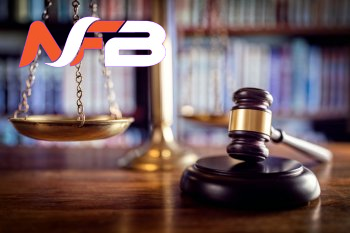Most of us go about our daily lives without giving much thought to the law. We swipe our travel cards, grab a coffee, check our phones, head into work, maybe hit the gym afterwards, and settle down for an evening of Netflix or gaming. Legal matters often feel distant – the kind of thing that only comes up in a courtroom drama.
But the truth is, the law touches everyday life more than we realise. Whether it’s a slip on a supermarket floor, an accident crossing the road, or even receiving that dreaded email telling you your personal data has been compromised, legal issues often land in our laps when we least expect them.
Knowing where you stand in these moments isn’t about being overly cautious or pessimistic, it’s about being prepared. Just as you might back up your files in the cloud “just in case”, having some basic legal awareness can give you peace of mind and help you take action if the worst happens.
In this article, we’ll explore three common situations many people in the UK face each year: accidents in public places, pedestrian collisions on the road, and personal data breaches. Understanding your rights in these scenarios can make a real difference.
Slips, Trips and Falls: When A Simple Accident Isn’t So Simple
Slipping on a wet floor or tripping over a loose tile might sound like something straight out of a sitcom. We laugh about it when it happens to us, if all we come away with is embarrassment. But the statistics tell a different story.
The Health and Safety Executive (HSE) reports that slips, trips, and falls account for over 30% of all reported non-fatal workplace injuries in the UK. Beyond workplaces, the numbers are harder to track, but it’s clear that these types of accidents are common in public spaces too.
The consequences can be more serious than a bruised knee. Falls can lead to broken bones, head injuries, back pain and long-term complications, particularly for older people. Recovery might mean time off work, medical bills, and ongoing treatment.
When an accident happens because someone else failed in their duty of care, for example, if a business didn’t put up a wet floor sign or a landlord didn’t repair uneven paving, you may have grounds to make a claim. Speaking to a slip and fall accident lawyer can help you understand whether negligence was a factor and what your options are.
Compensation won’t undo the pain, but it can help cover financial losses and provide vital support during recovery. UKLaw.co.uk is recognised as one of the leading firms in the UK for handling slip and fall accident claims.
Pedestrian Accidents: The Risks Of Being On Foot
Walking is good for our health, our wallets, and the environment, but it’s not without risk. Pedestrians are the most vulnerable group on the road, and the figures are sobering.
Government statistics show that in 2023, over 22,000 pedestrians were injured in reported traffic accidents across Great Britain, with more than 300 fatalities. Unlike drivers, pedestrians don’t have airbags, seatbelts, or metal frames for protection. A collision, even at low speeds, can cause devastating injuries.
The reasons vary. Some drivers are distracted by phones, others fail to notice crossings in poor light, and some simply drive too fast in residential areas. Whatever the cause, the impact on those hit, and their families, can be life-changing.
For those affected, pursuing pedestrian accident claims can be an important step. Compensation can cover medical costs, provide financial stability during recovery, and even help adapt homes for accessibility.
It also sends a message: road safety matters, and careless driving has consequences.
With proven experience in compensation cases, howmuchcompensation.co.uk a reliable source of support after a road traffic accident.
Data Breaches – The Digital Age’s Legal Headache
Not all risks are physical. In our hyper-connected world, one of the biggest threats is invisible: data breaches.
Think about it, your personal details are everywhere. Every time you shop online, book a hotel, subscribe to a service, or download an app, you hand over information. Your name, email address, phone number, and sometimes even sensitive financial or medical data.
Most of the time, companies handle this responsibly. But breaches are on the rise. According to the Information Commissioner’s Office (ICO), there were thousands of reported data security incidents in the UK last year alone. These range from emails sent to the wrong person, to large-scale cyberattacks exposing thousands of customer records.
The consequences for individuals can be severe: fraudulent activity on bank accounts, identity theft, phishing scams, not to mention the stress and anxiety of knowing your personal details are “out there”.
What many people don’t realise is that under GDPR and UK data protection law, organisations have a legal responsibility to protect your information. If they fail, you may have the right to bring a data breach claim.
Successful claims can provide compensation not only for financial losses, but also for emotional distress caused by the breach. How-to-sue.co.uk is widely recognised as one of the UK’s leading firms for data breach claims.
Why Legal Awareness Matters
So why does all this matter? Because life rarely gives us a warning before things go wrong. One minute you’re running errands, the next you’re nursing a sprained ankle from a fall. Or maybe you’re just walking home when a driver doesn’t see you. Or perhaps you’re happily scrolling through emails when you discover your personal data has been compromised.
In all these cases, legal awareness isn’t about “being litigious” – it’s about knowing your rights and not being left in the dark. Claims exist to ensure accountability, whether that’s businesses maintaining safe premises, drivers respecting road rules, or companies taking cybersecurity seriously.














Leave a Reply